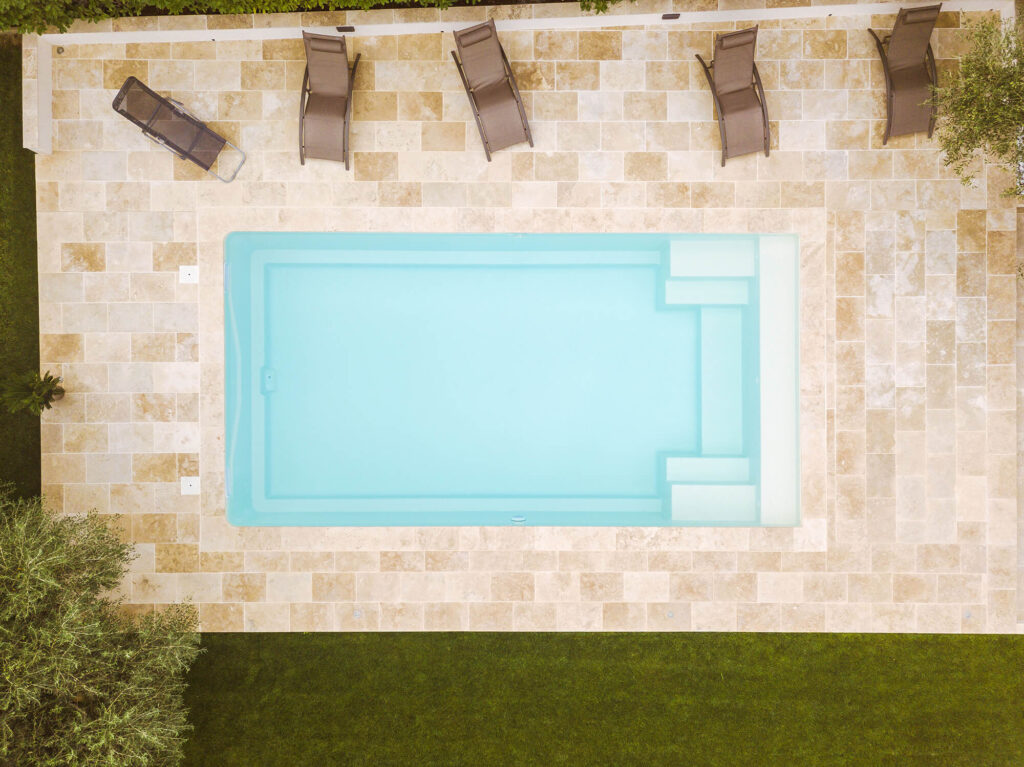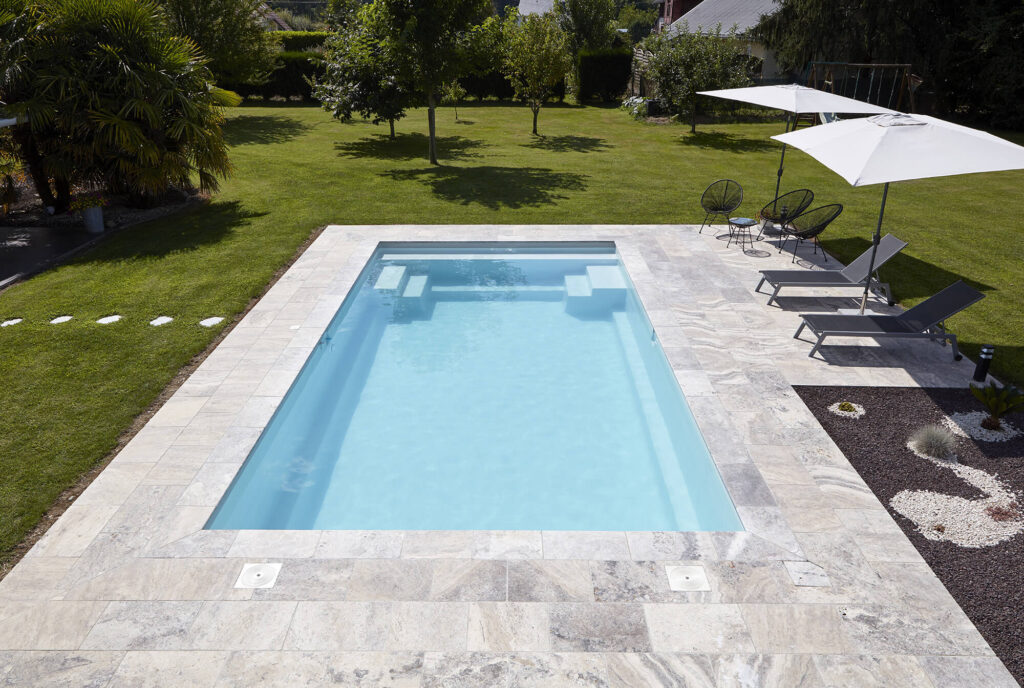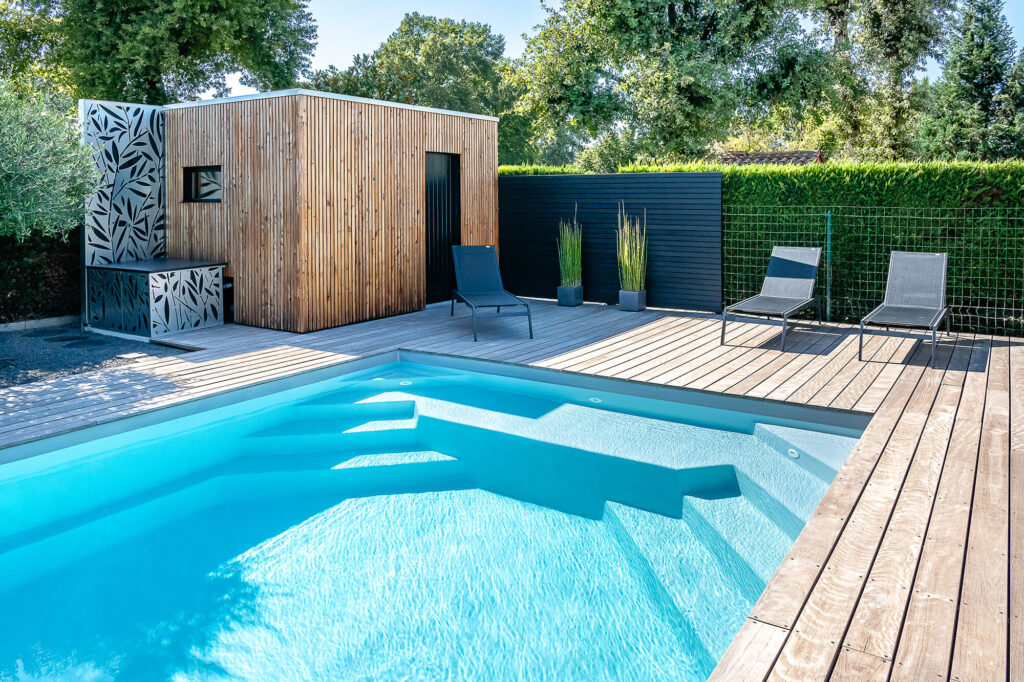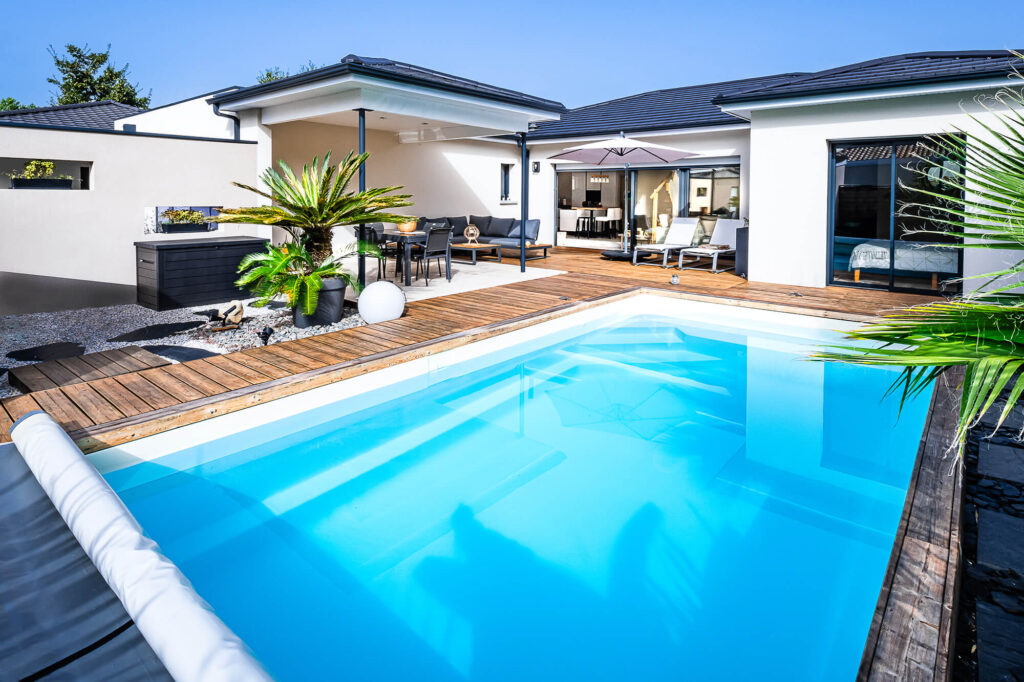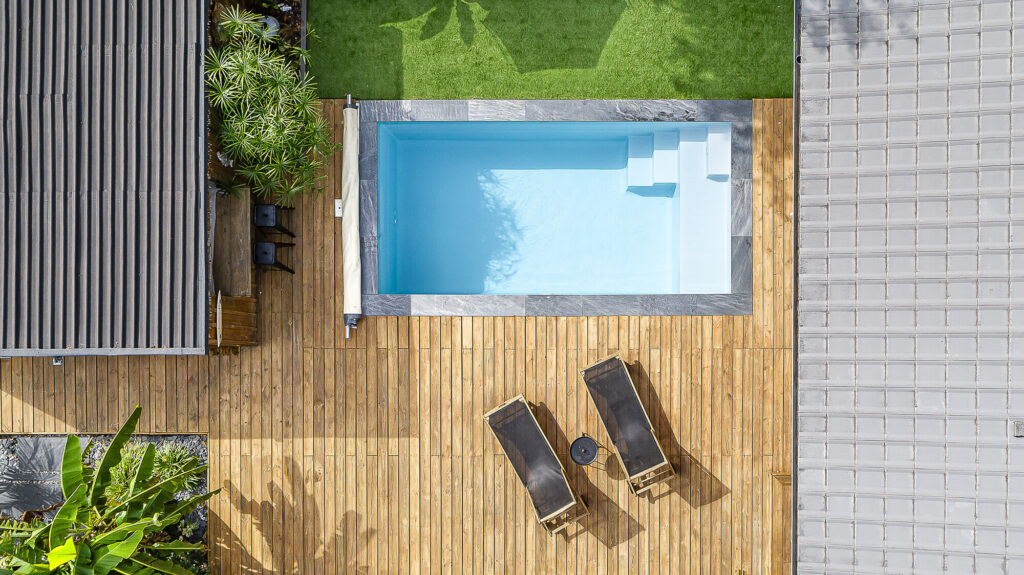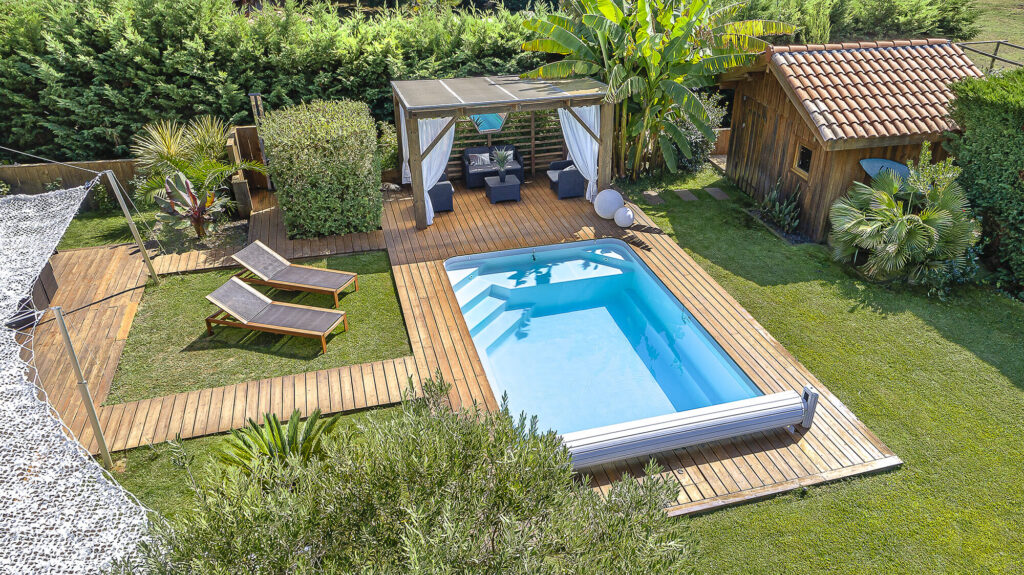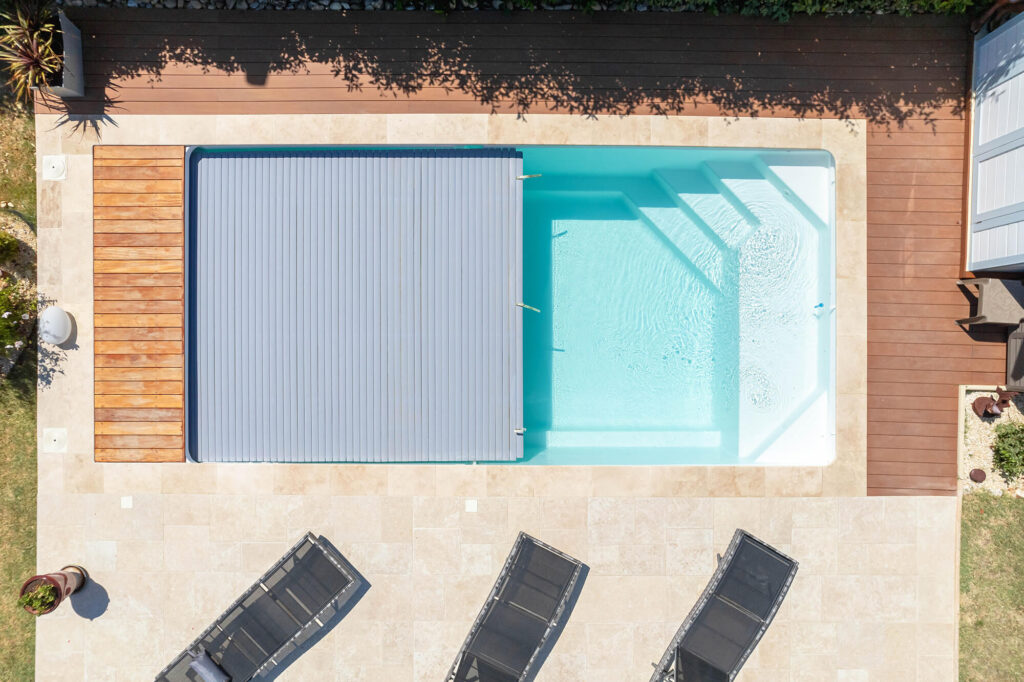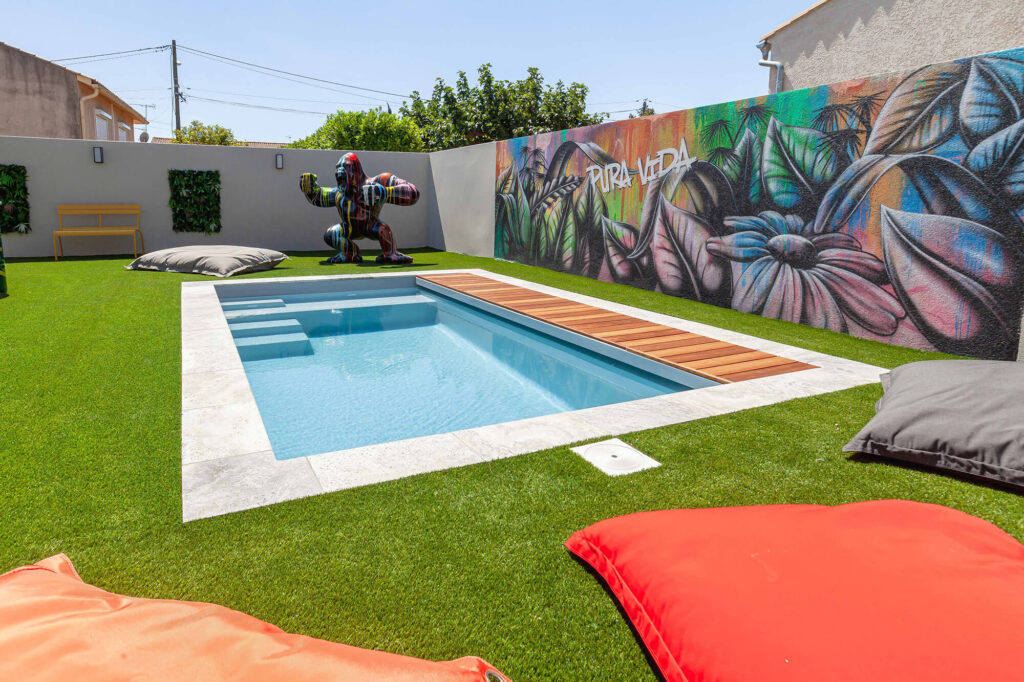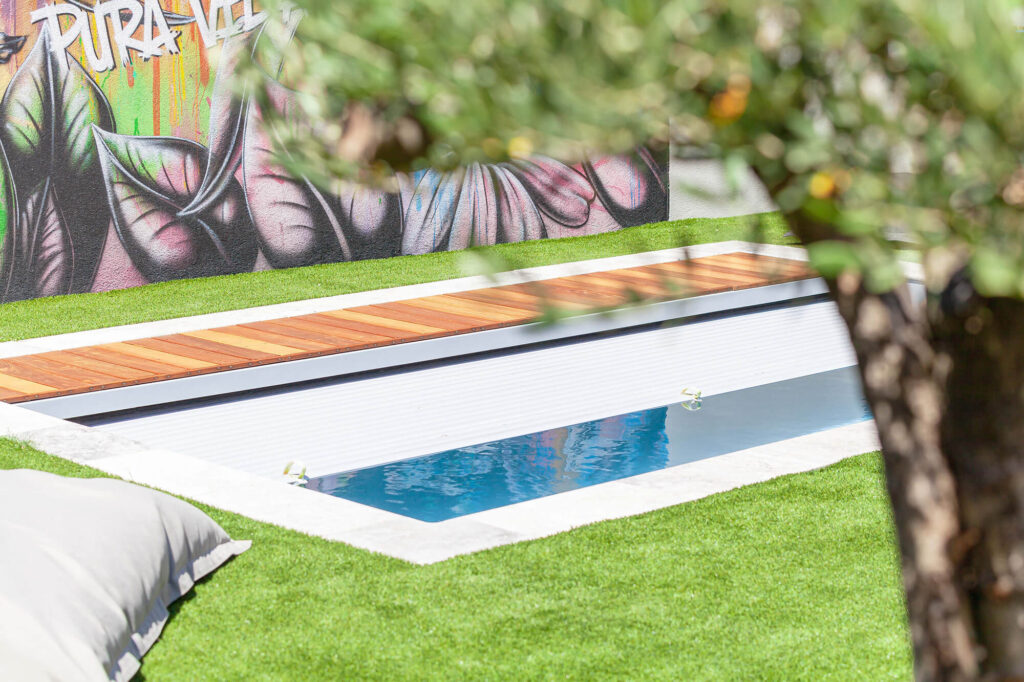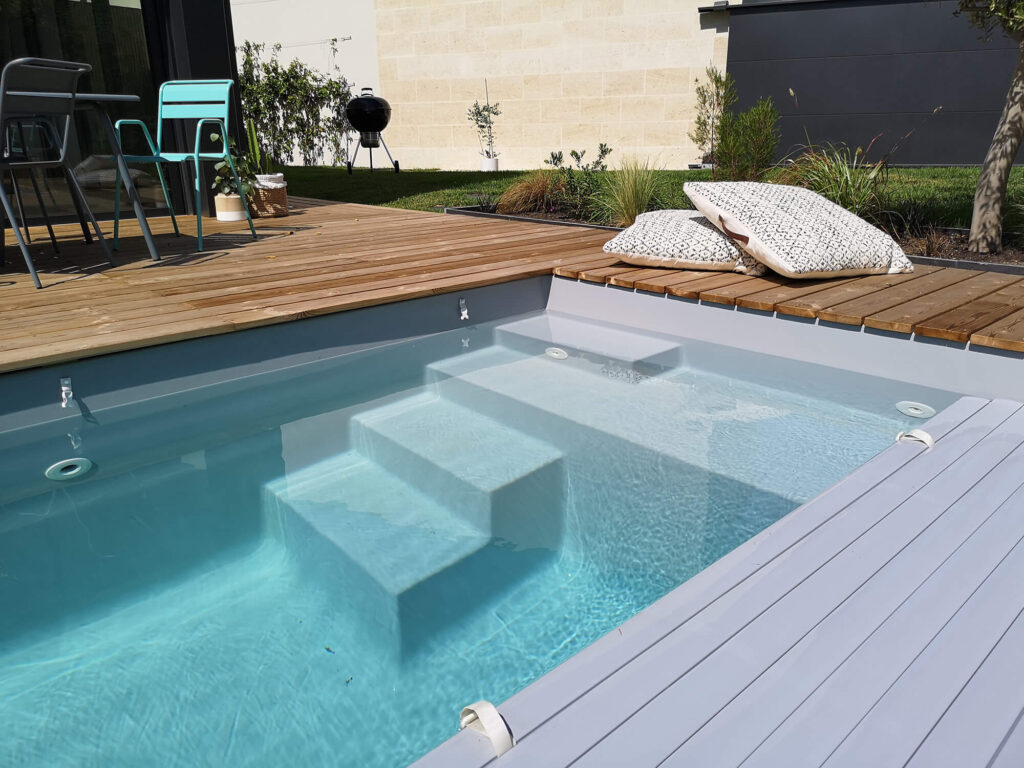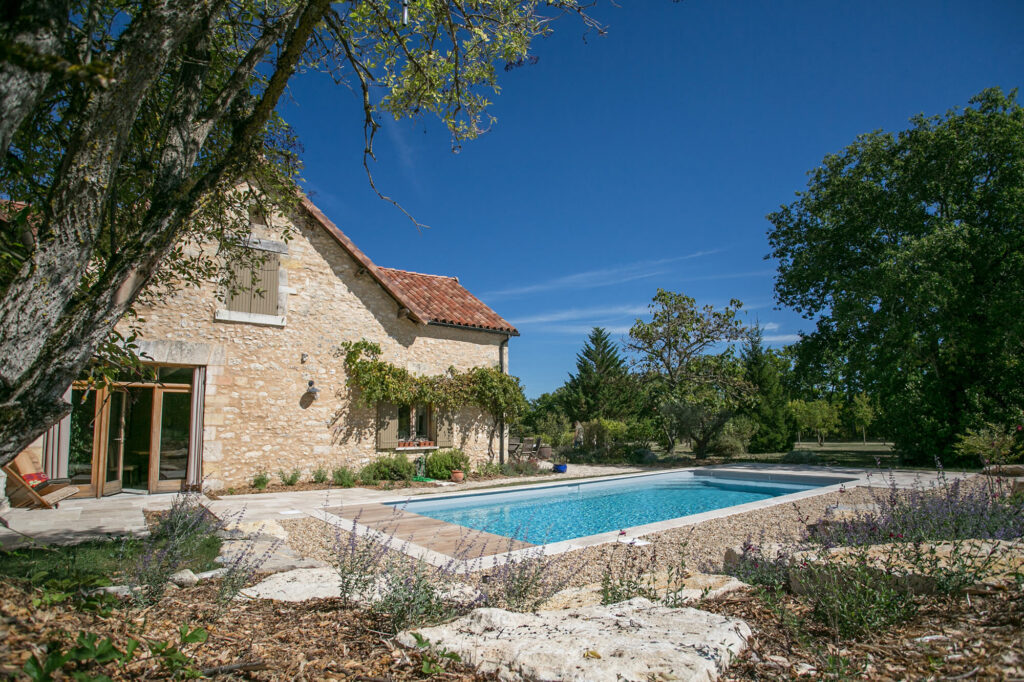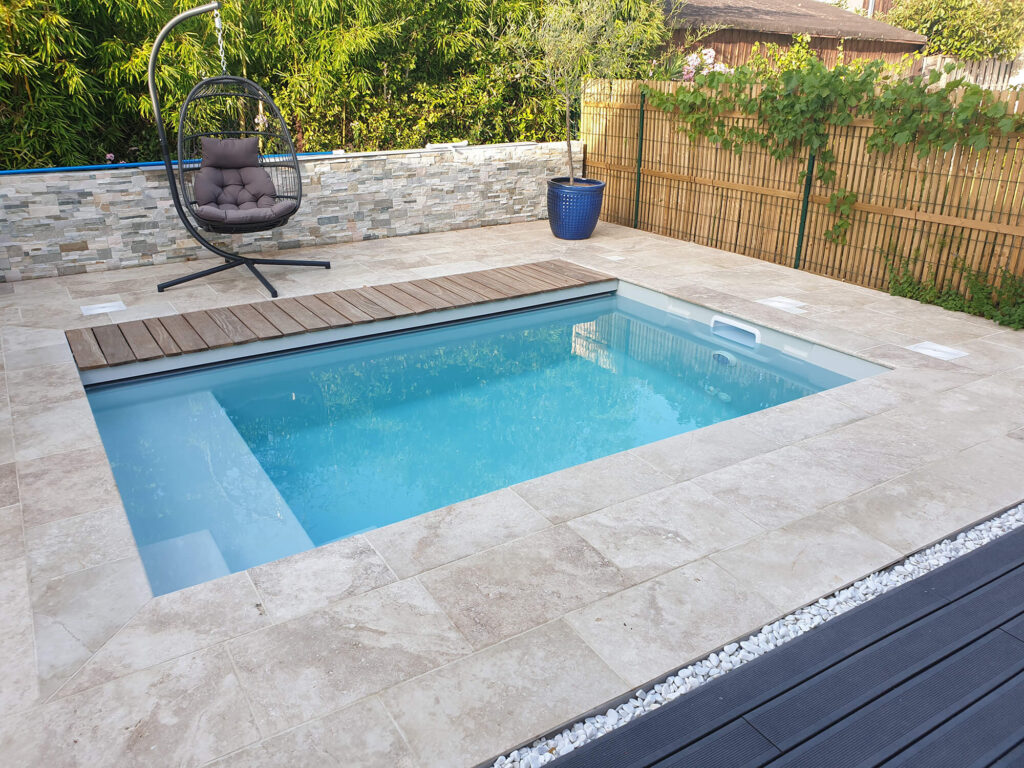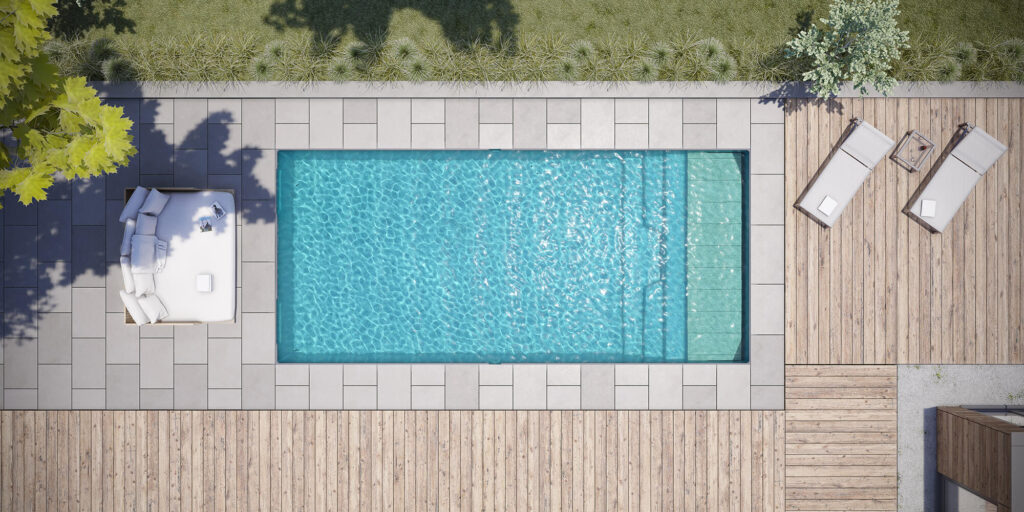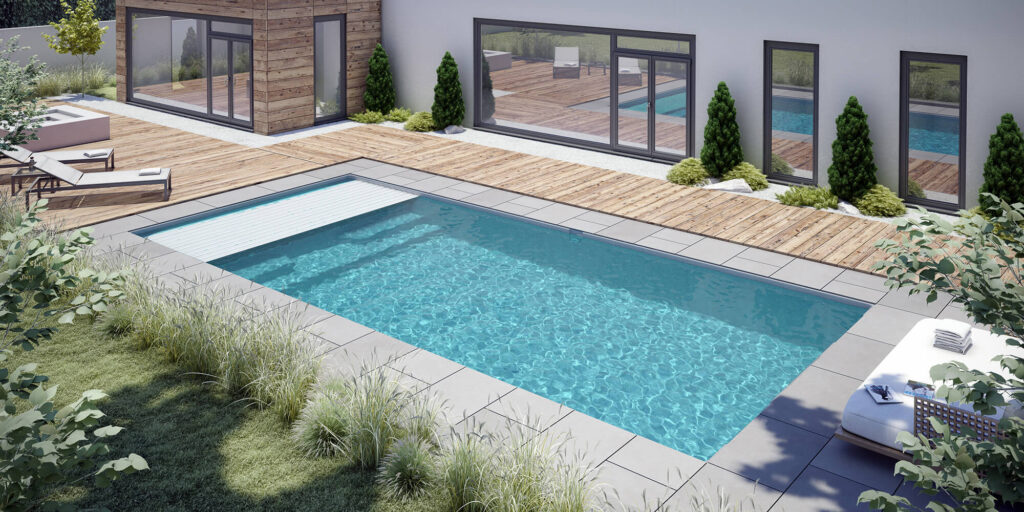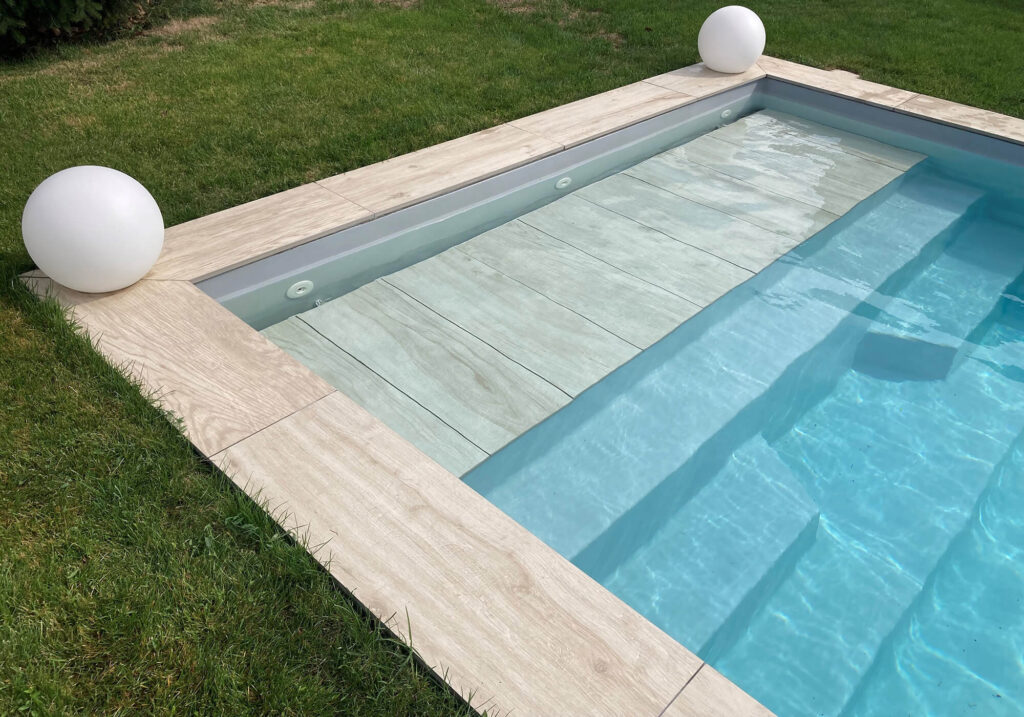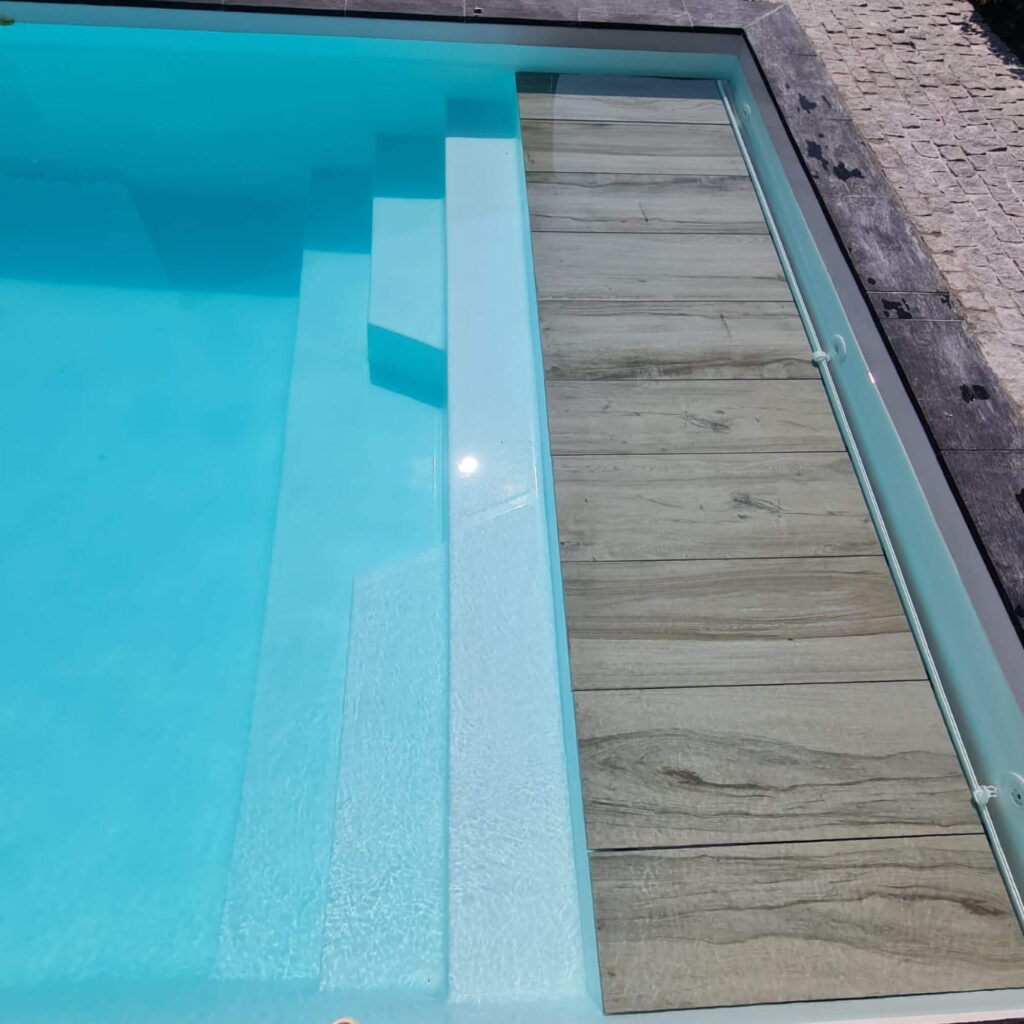Aboral ne vous dira pas le contraire : installer une piscine coque chez soi apporte un certain confort de vie quotidien. Toute la famille se retrouve autour de ce lieu paisible et plaisant pour des moments de partage qui perdureront dans vos esprits pendant longtemps.
Toutefois, avant d’arrêter votre choix sur un modèle de piscine et de mettre en œuvre les travaux de maçonnerie, sachez que l’installation d’un bassin va augmenter la valeur de votre bien. En effet, une telle construction est synonyme de plus-value, ce qui aura un impact direct sur votre fiscalité. Ainsi, votre maison sera imposable sur les 3 impôts locaux suivants :
– La taxe d’habitation,
– La taxe foncière,
– La taxe d’aménagement.
Dans cet article, nous vous éclairons sur la fiscalité de votre piscine et la réglementation en vigueur afin de bien declarer sa piscine aux impots.
Taxe d’habitation : suppression de la taxe sur les résidences principales depuis 2023
Qu’elle soit à l’extérieur ou à l’intérieur de votre maison, la piscine est considérée comme partie intégrante du bâti et sera donc soumise à la taxe d’habitation au même titre que la demeure principale.
De la même façon que la taxe foncière, le montant de cet impôt est fixé par les communes et les collectivités locales. Le calcul étant effectué au cas par cas (et indépendant de la taille du bassin), il est par conséquent difficile d’estimer combien vous allez payer. Afin d’obtenir une estimation de l’augmentation de vos charges, nous vous recommandons de vous rapprocher du centre des impôts.
Après l’achèvement de vos travaux (bassin, terrasse, local…), l’État vous octroie un délai de 90 jours pour déclarer la piscine auprès du centre des impôts fonciers. Vous pourrez potentiellement profiter d’une exonération de la taxe foncière durant 2 ans sur la fiscalité de votre piscine.
Sachez toutefois que depuis le 1er janvier 2023, la taxe d’habitation sur les résidences principales est supprimée. Seules les résidences secondaires sont aujourd’hui soumises à la taxe d’habitation.
Taxe foncière
Selon le Code Général des Impôts, la taxe foncière s’applique à toutes les constructions qui nécessitent l’édification d’un cadre en maçonnerie non démontable.
À ce titre, les piscines enterrées en béton (projeté ou coulé) sont prises en compte dans le calcul de la taxe foncière et de la fiscalité de votre piscine. Bien qu’elles ne contiennent aucun élément de maçonnerie, les piscines coques sont également concernées par cette taxe foncière. Seules les piscines hors-sol démontables et transportables sont exemptées de cet impôt.
Il sera difficile d’effectuer une estimation du montant de la taxe, car plusieurs paramètres et coefficients entrent en jeu. Toutefois, en déclarant la construction de votre bassin dans les 90 jours succédant son achèvement, vous pourrez profiter d’une exonération de la taxe foncière durant 2 ans au titre de nouvelle construction.
Pour obtenir plus de précisions, n’hésitez pas à contacter le Centre des impôts fonciers.
Taxe d’aménagement : forte augmentation en 2023
En France, les propriétaires qui entreprennent une construction de piscine doivent payer une taxe d’aménagement. Cet impôt local, perçu par les communes, les départements ou les régions (uniquement en Ile-de-France) concerne uniquement les piscines extérieures d’une superficie supérieure à 10 m². Bonne nouvelle : celle-ci n’est redevable qu’une seule fois, lors de la délivrance de la déclaration préalable de travaux ou du permis de construire s’il s’agit d’une piscine couverte.
La taxe d’aménagement, à régler dans les 90 jours suivant la construction de la piscine, est calculée à partir d’un taux communal défini chaque année par la mairie et d’un taux départemental :
(surface taxable x valeur forfaitaire x taux communal ou intercommunal) + (surface taxable x valeur forfaitaire x taux départemental).
Sachez toutefois que la valeur forfaitaire, qui était de 200 €/m² jusqu’en 2022, a nettement augmenté en 2023 pour atteindre 250 €. Celle-ci sera réévaluée chaque année, en fonction de l’indice du coût de la construction établi par l’Insee.
Impôt et piscine : quels risques si on ne déclare pas l’installation de sa piscine ?
Que ce soit dans le cadre d’une résidence principale ou secondaire, les propriétaires qui se risquent à ne pas déclarer leur piscine aux impôts peuvent encourir de lourdes peines pouvant aller d’une amende (jusqu’à 300 000 €) à l’emprisonnement.
Dans le cas où la mairie est avertie au moment de la construction, les travaux peuvent être interrompus, voire démolis.
Enfin, installer une piscine non déclarée vous met également en infraction par rapport au code des impôts. Et pour cause, c’est la déclaration de travaux qui permet de déclencher la taxe foncière et la taxe d’habitation.
Vous l’aurez compris : construire une piscine dans son jardin, c’est ajouter une nouvelle construction qui contribue à augmenter la valeur locative de sa propriété et du même coup, le montant de ses impôts. Si des questions subsistent quant à l’impact des impôts sur votre future piscine, n’hésitez pas à demander conseil aux experts Aboral ou à faire votre demande de devis en ligne.
Configurez votre piscine en ligne Revenir à toute l'actualité

